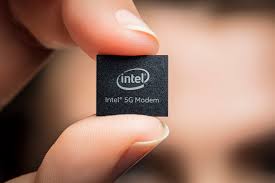In latest court papers Intel accuses previous rival Qualcomm for anticompetitive business methods that led it to lose billions and obliged the sale of its handset modem processor business to Apple at a fire-sale cost of $1 Billion.
Intel’s statement was made in opposition to appeal by Intel States Qualcomm Anticompetitive Means Led To Billions In LossesQualcomm for a ruling previously this year that its anticompetitive methods had damaged rivals and that its licensing methods had to be altered.
General counsel and executive vp at Intel, Steven Rodgers, says in a post, “Intel fought for almost a decade to develop a profitable modem processor business. We hired thousands, spent billions, and acquired two firms. Intel cannot overcome the insurmountable and artificial barriers to fair competition made by Qualcomm’s offer. And hence was forced to get out of the market in 2019”.
The Qualcomm appeal is anticipated to start in early January next year. A bunch of auto-parts suppliers and automakers also filed statements in opposition to Qualcomm claiming that its licensing methods might lead to higher car costs.
Intel has far more knowledge in defending itself in opposition to claims of antitrust as compared to complaining about being the sufferer of anticompetitive methods. In this strange case for Intel, it not only had to cope with an alarming rival in Qualcomm but it also encountered major production and design challenges in its modem processor business.
Wireless communications has been traditionally a very hard business for Intel spanning many failures and several decades. In 2006 it sold its Communications venture for $600 Million to Marvell—also at a huge loss, after several years of large operational spending and acquisitions.
Wireless communications processors are disreputably hard tomato and incorporate with chip designs due to the specialist production techs. Intel’s fabs are developed majorly to create high yields of chips and related incorporated systems that share the similar process of CMOS manufacturing.
